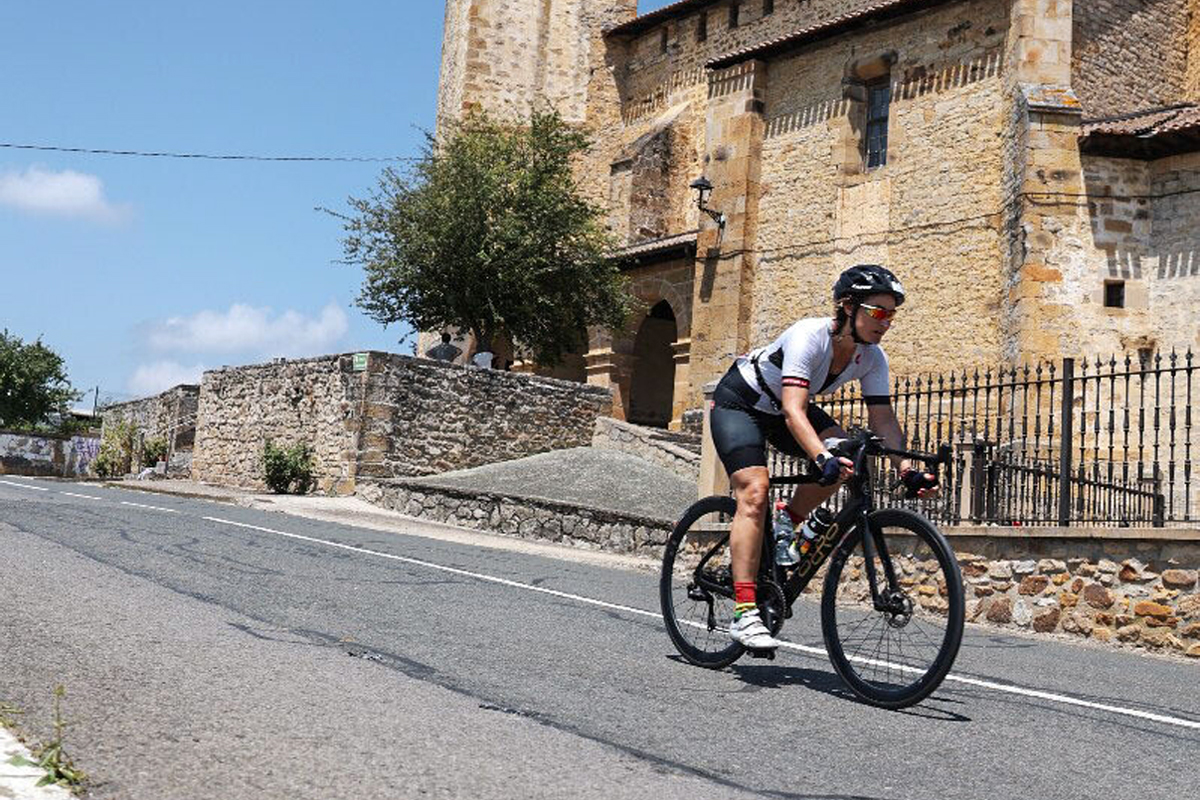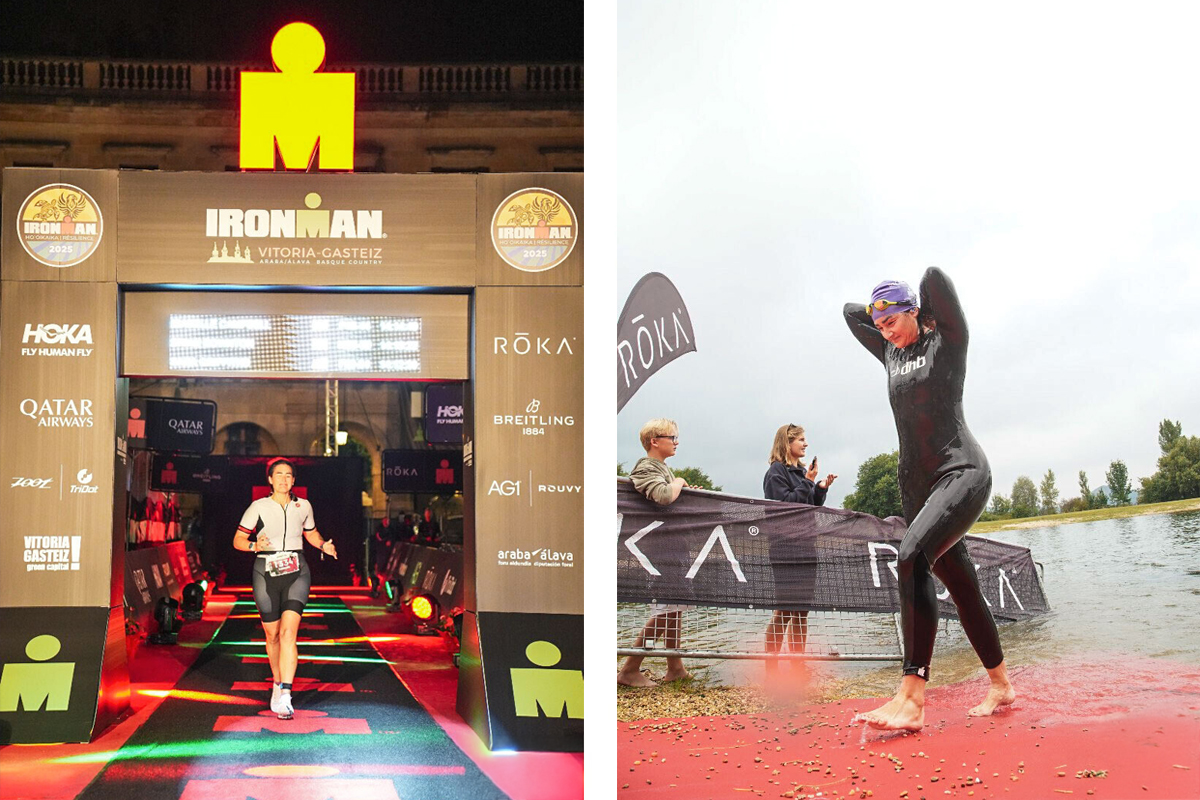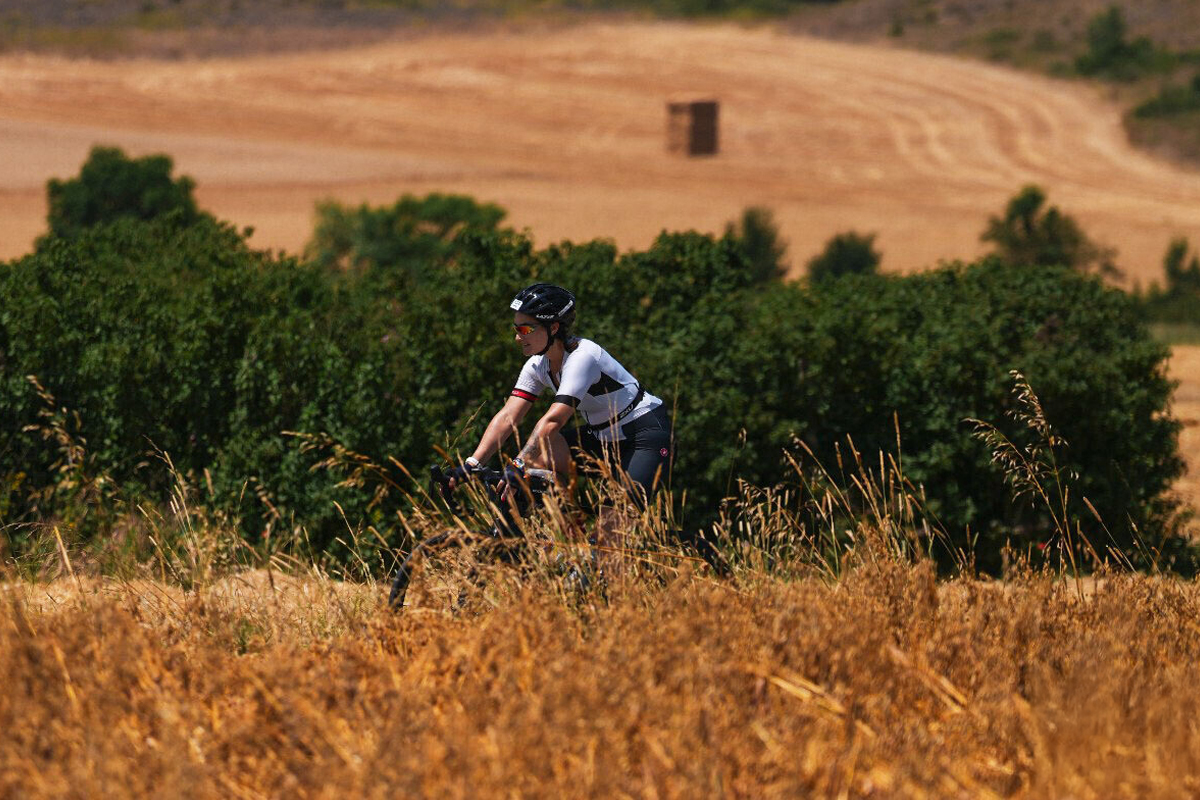
You recently completed an Ironman – first off, a massive congratulations! What made you want to take part in an Ironman?
I’ve always been interested in how far we can push ourselves both in body and mind. I believed that completing a 140 mile race was physically possible, given enough training and a bit of luck, but I wasn’t sure it was mentally possible, so I decided to find out!
Have you completed any other forms of endurance events?
I’ve done seven marathons and an ultra marathon. The Ironman felt like the next obvious step in terms of physical challenge but also mental resilience.
How did your Ironman preparation differ from previous preparations you’ve done for other events?
You can’t wing anything in an Ironman – you might be out on the course for 15 hours or more. As much prep went into nutrition and gut training (I consumed 26 gels on race day and my body needed to be trained to do that!) So much thought went into nutrition, timing, logistics. There are so many variables in a triathlon – weather, road conditions, bike mechanicals etc, so I really focused on controlling the controllables and practicing everything that I could including kit and transitions.

How do you feel strength training helped you during your Ironman and the preparation leading up to it?
It’s a very different discipline – I’ve been lifting heavy weights for a few years now and a typical session involves very short burst of intense effort and its own version of mental resilience whereas endurance triathlon training is steady effort over many hours. They both require very different forms of physical and mental strength and they both make me feel fantastic in very different ways. Whilst there wasn’t too much that was transferable from one discipline to another in physical terms, I’d say the need for focus, discipline and self confidence translates quite well. On a practical level, I’m convinced that keeping up my strength training while doing 15 hours a week of endurance work across three disciplines was a strong contributing factor to me not sustaining a single injury over 8 months of training.
Ironman preparation must have taken a lot of time and energy. How did you balance both strength training and preparation?
Yes, it’s not to be taken lightly – important to be realistic about what it involves in terms of training hours and sacrifice in terms of time and lifestyle choices. There weren’t many lie-ins, nor much socialising over the eight months of training. But I had a goal and I was clear what I needed to do to give myself the best chance of achieving it.
It would have been very easy to make my weekly PT session the first thing to go and just focus on the three disciplines of the sport but – not only do I really enjoy it – I knew I wanted to keep up my strength as best as I could. This is where having a coach was invaluable, we adapted as the months went by; keeping up progression in terms of the weights to begin with, then plateauing and adjusting as my training volume went up and I was more fatigued. My Ironman training had one rest day per week and i was usually training twice a day the rest of the week, sometimes for seven plus hours per session. It was important that my strength training complemented that and I wasn’t experiencing muscle soreness.
Due to the nature of an Ironman and the preparation, injuries and aches must be common. How did strength training help you stay injury-free during your preparation?
I was fortunately injury free throughout my training and didn’t really suffer any niggles. In part that’s down to the Ironman training being slow and steady efforts rather than too much pace or high impact work but I’m also convinced that the years of strength training I’ve done up to this point contributed to me starting from a strong base and being in good physical shape to take on the high volume of training.

Do you recall a specific lift in your strength training sessions that particularly helped during the Ironman?
Not really… I was just gutted you kept making me do overhead press…
What effect has strength training had on you, not only in terms of exercise and completing events, but also in day-to-day life?
Unfortunately the benefits of being strong became very clear recently when I had a high speed bike crash. I came away relatively unscathed and the medical professionals who looked after me were amazed I hadn’t broken anything.
Beyond that in day to day life, I feel physically resilient going about my day to day life, with my busy job and my kids. I have good posture and generally don’t suffer with any aches or pains. As I get older, it’s clear to me that this is more and more important. Plus I love it – it makes me feel strong in every way!
